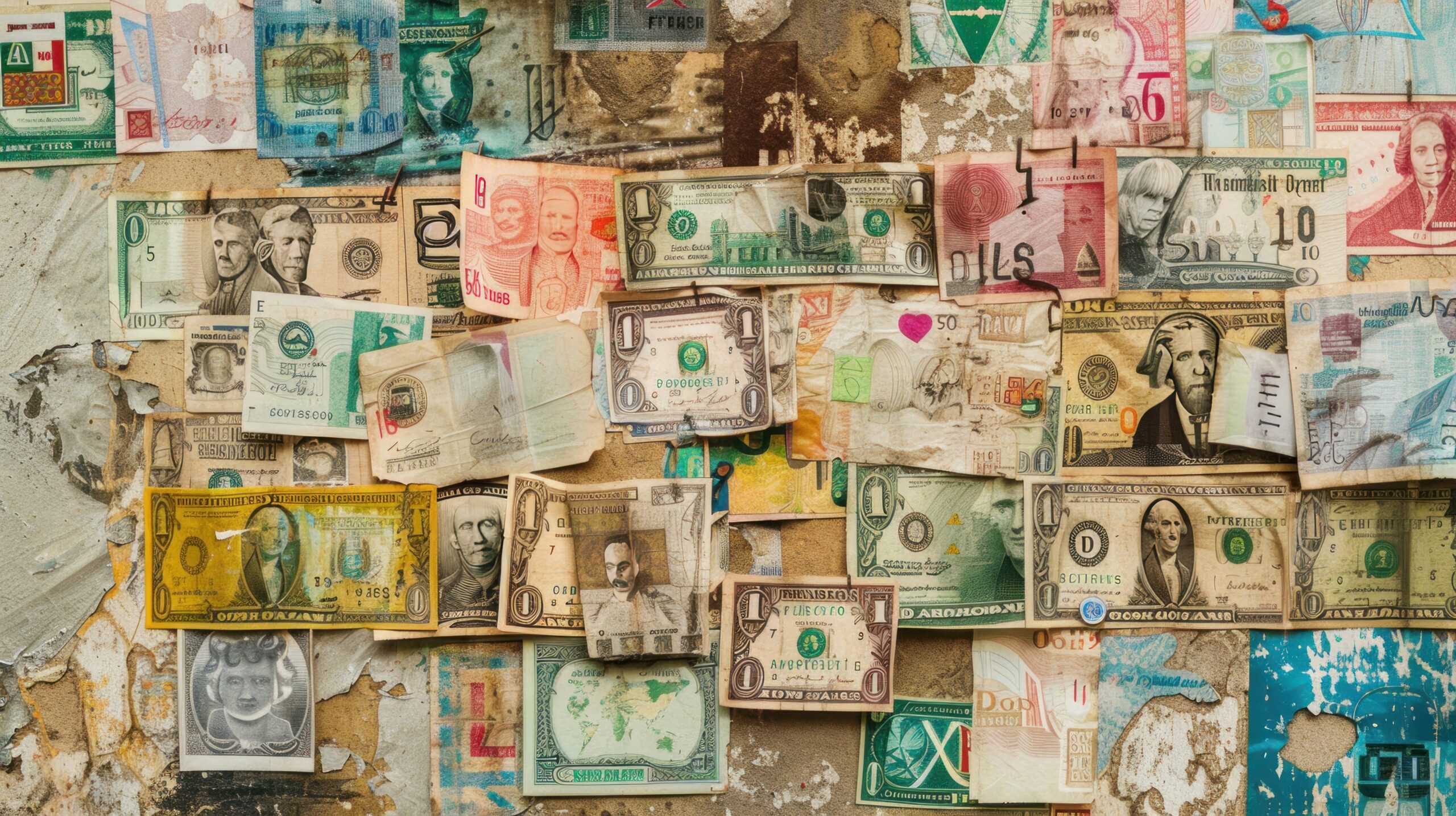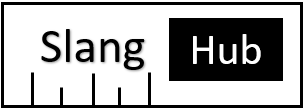Slang for money is one of the most creative and playful aspects of language, and every country has its own unique terms. Whether you’re talking about cash in the UK, the US, or somewhere else, money slang reflects regional quirks and generational preferences. Some terms are classic and cross-generational, while others are fresh and trendy, used mainly by younger crowds.
Ready to discover how people around the world refer to their hard-earned cash? SlanHub break it down by country, region and generation!

Popular Slang for Money Around the World
United Kingdom
Quid – Used by all generations, “quid” is a staple for referring to pounds. “I spent twenty quid on dinner.”
Fiver – A term for a five-pound note, used by everyone from Boomers to Gen Z. “Got a fiver for the coffee?”
Tenner – Refers to a ten-pound note, popular with all ages. “I need a tenner for the train fare.”
Wonga – A cheeky British term for cash, mostly used by older generations. “I’ll need some wonga to fix the car.”
Dosh – Common among Boomers and Gen X to refer to money. “He’s got loads of dosh saved up.”
Readies – A term for cash that’s most popular with Boomers. “I need some readies for the night out.”
Bangers – Cockney slang for pounds, heard mostly from older generations. “That’ll cost you ten bangers, mate.”
Shrapnel – Refers to loose change, used by younger generations in urban areas. “Got any shrapnel for the vending machine?”
Nuggets – A more recent slang term for coins, used mainly by Millennials. “Throw me a few nuggets for the arcade.”
Spondulicks – A playful term for money, mostly used by Gen X. “I’ve got enough spondulicks to last the weekend.”
For more popular UK slang terms, visit our page.
United States
Bucks – A classic American term for dollars, used by all generations. “It’ll cost you 50 bucks to enter.”
Benjamins – Refers to hundred-dollar bills, popular among Millennials and Gen X. “I’m all about the Benjamins.”
Dough – A versatile slang term for money, used by all ages. “She’s making serious dough with that promotion.”
Moolah – Playful and often used by Boomers and Gen X. “I’m running low on moolah this week.”
Cheddar – Slang for cash, especially common with younger generations in the hip-hop community. “I’ve got to hustle for some cheddar.”
Stacks – Refers to large amounts of money, typically used by Millennials and Gen Z. “He’s got stacks from his new business.”
Greenbacks – An older term for money, mostly used by Boomers. “I could use some greenbacks for that road trip.”
Bills – Refers to money, often large denominations, used by Gen X and Millennials. “I’ve got to pay the bills.”
Scratch – Old-school term for money, used by Boomers and some Gen Xers. “He’s earning some scratch on the side.”
Bones – Another term for dollars, often used by older generations. “It’s going to cost you 20 bones.”
For more popular US slang terms, visit our page.
Canada
Loonie – Refers to the Canadian one-dollar coin, used by all generations. “Got a loonie for the bus?”
Toonie – Refers to the Canadian two-dollar coin, used widely. “I’ve got a toonie left for coffee.”
Bucks – Just like in the US, Canadians also refer to dollars as bucks. “That’ll be ten bucks, eh?”
Coin – Often used by younger generations to refer to money in a digital context. “I need to make some coin on this gig.”
Cashola – A playful term for money, used by Gen X and Boomers. “Need to grab some cashola for the night out.”
For more popular Canadian slang terms, visit our page.
Australia
Buck – Used just like in the US and Canada, refers to Australian dollars. “That’ll be fifty bucks.”
Fiver – A five-dollar note, used by all generations. “Got a fiver for the taxi?”
Tenner – Refers to a ten-dollar note, used across all age groups. “It’s a tenner for the entry fee.”
Dollarydoos – A fun, joking term for Australian dollars, mostly used by Millennials. “I need some dollarydoos for the weekend.”
Clams – A term for money, more common among older generations. “I earned a few clams today at work.”
For more popular Australian slang terms, visit our page.
Ireland
Quid – Just like in the UK, “quid” is used in Ireland for euros. “I need 20 quid to pay the bill.”
Bob – Used to refer to small amounts of money, popular with Boomers and Gen X. “Got a few bob to spare?”
Bucks – Similar to the US, used by younger generations for euros. “That coffee’s two bucks.”
Yoyo – Slang for euros, especially popular among Millennials. “How much is that? About 50 yoyo.”
For more popular Northern Irish slang terms, visit our page.
Scotland
Quid – Like the rest of the UK, “quid” is used across Scotland to refer to pounds. “I just spent 15 quid on that haggis.”
Poond – A Scottish variation of “pound,” commonly used by all generations. “That’ll be 20 poond for the groceries.”
Bawbees – An old Scottish term for small change, mostly used by older generations and often humorously. “I’ve only got a few bawbees left in my pocket.”
Tenners – Refers to a ten-pound note, just like in the rest of the UK, but popular in Scotland across all age groups. “Hand me a tenner for the drinks.”
Fiver – Also used in the rest of the UK, this is common in Scotland for a five-pound note, across all generations. “Lend me a fiver till payday.”
Siller – A traditional Scots word for money, sometimes used by older generations or in rural areas. “I dinnae have much siller on me today.”
Dosh – Like in the rest of the UK, “dosh” is used in Scotland to refer to money, particularly by Gen X and Boomers. “He’s made some decent dosh from that sale.”
Cluds – A Scottish slang term for coins or loose change, mostly used by older generations. “I’ve got some cluds in my pocket for the bus.”
Ching – A term for cash, commonly used by younger generations in urban areas like Glasgow and Edinburgh. “Need some ching to grab lunch.”
Bucks – Like the US, Canadians, and Australians, younger generations in Scotland often refer to pounds as “bucks.” “That new phone cost me 300 bucks.”
For more popular Scottish slang terms, visit our page.
South Africa
Bucks – Refers to the South African rand, used widely by all generations. “That’ll be 200 bucks.”
Rand – While not strictly slang, younger generations use “rand” casually. “I need a few rand for lunch.”
Moola – Playful term for money, used by Gen X and Boomers. “I need to save up some moola for the weekend.”
New Zealand
Buck – Used just like in Australia, referring to New Zealand dollars. “That’ll be 10 bucks for the coffee.”
Fiver – Refers to a five-dollar note, used by all generations. “Can I borrow a fiver?”
Kiwis – Sometimes used jokingly by younger generations to refer to money. “I need a few Kiwis for lunch.”
Goldies – Slang for one and two-dollar coins, popular with Boomers. “Got a couple of goldies for the meter?”
Global/Internet Slang
Bread – A universal term for money, used widely in the US, UK, and beyond, especially by Millennials and Gen Z. “He’s making bread from his side gig.”
Paper – Popular across generations, referring to physical cash. “I need to get some paper before heading out.”
Coin – Used globally in a digital context, especially by Millennials and Gen Z. “I’m making some serious coin online.”
Bands – Refers to large stacks of cash, used globally, especially in the hip-hop scene. “He’s got bands from that deal.”
Chips – Another playful term for money, often used in gambling contexts. “I’m out of chips for tonight’s game.”
For more popular Generational slang terms, visit our page.
These terms highlight just how creative and diverse slang for money can be around the world! Whether you’re chatting about cheddar in the US, quid in the UK, or dollarydoos down in Australia, slang makes talking about cash a lot more fun.
